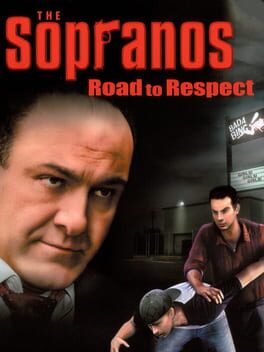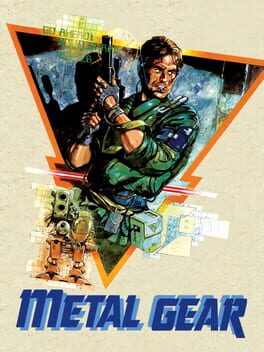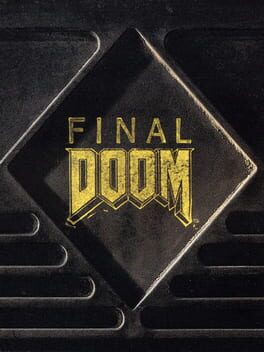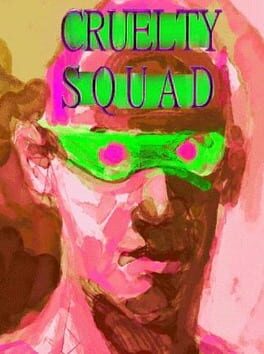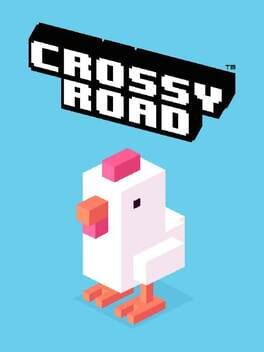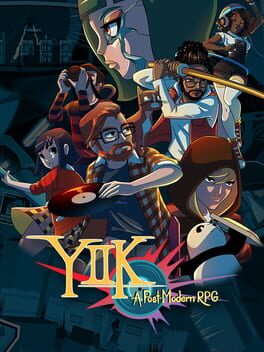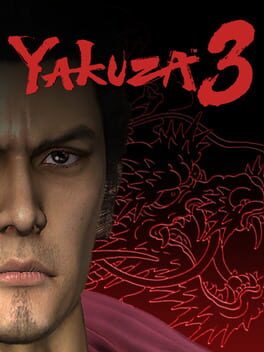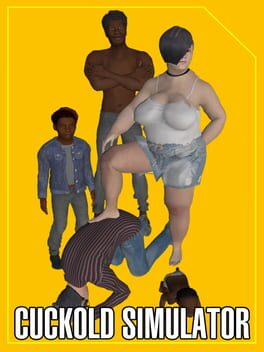twist
82 Reviews liked by twist
Fuck it - I was in the middle of a Sopranos rewatch anyway and it's only 3 hours long, so why the hell not? Purports to be set in the middle of Season 5, though there isn't much to suggest that beyond a surprisingly well-rendered and well-acted Satriale gang showing up every once in a while to do a catchphrase for your amusement. A testament to the professional calibre of guys like Gandolifini and Imperioli that they actually read some of this "PRESS THE SQUARE BUTTON TO GRAB" shit at the same level as the gold David Chase and Matthew Weiner were weaving for them on the TV programme.
Unfortunately, there's no direct references to the ongoing storylines that were on television at the time, but that's maybe for the best given that Season 5 was mostly dealing with PlayStation 2-unfriendly topics like the impossibility of dissolving a marriage, the effects and ennui of Alzheimer's disease and the fundamentally immutable nature of human beings. It's very amusing to imagine Tony coming back to the Bing after one of this season's countless heart-wrenching conversations with his Uncle Jun or Carmela to dispense a [COLLECT 5 PASTRAMI SANDWICHES] fetchquest for our player-character.
Feels downright surreal at times to be playing a punch-punch-kick beat 'em up based on one of television's most legitimately prestigious works of art, and is worth playing for that reason alone; honestly, this isn't that far off, I dunno, "THE WIRE KART" or "MAD MEN: A TELLTALE SERIES". For my sins, I'm also playing Buffy the Vampire Slayer: Chaos Bleeds at the moment and even a campy little show like that feels tightly constricted by the chains of videogamedom. If nothing else, it was nice to walk around the Bing and other locations from the show and see all the sets connected together into a cohesive collection of liminal spaces I know. Just wish there was an Alabama 3 driving mission.
Unfortunately, there's no direct references to the ongoing storylines that were on television at the time, but that's maybe for the best given that Season 5 was mostly dealing with PlayStation 2-unfriendly topics like the impossibility of dissolving a marriage, the effects and ennui of Alzheimer's disease and the fundamentally immutable nature of human beings. It's very amusing to imagine Tony coming back to the Bing after one of this season's countless heart-wrenching conversations with his Uncle Jun or Carmela to dispense a [COLLECT 5 PASTRAMI SANDWICHES] fetchquest for our player-character.
Feels downright surreal at times to be playing a punch-punch-kick beat 'em up based on one of television's most legitimately prestigious works of art, and is worth playing for that reason alone; honestly, this isn't that far off, I dunno, "THE WIRE KART" or "MAD MEN: A TELLTALE SERIES". For my sins, I'm also playing Buffy the Vampire Slayer: Chaos Bleeds at the moment and even a campy little show like that feels tightly constricted by the chains of videogamedom. If nothing else, it was nice to walk around the Bing and other locations from the show and see all the sets connected together into a cohesive collection of liminal spaces I know. Just wish there was an Alabama 3 driving mission.
Persona 5 Royal
2019
I have never really cared for or played many jrpgs, not really that type of guy. But then I decided to get a playstation and my friend kept bugging me to play it, they even bought it for me as an out of nowhere gift. I didnt know anything about the game, I havent even seen an anime that wasn't Dragon Ball Z before so I was about 90% sure I wouldnt like it. And it starts off pretty slow but for some reason, perhaps determination to give the game a fair chance for my friend I got sucked in. And before I knew it I had played like ten hours of this over the course of a day. While ELDEN RING was out! This game made me stop playing Elden Ring, thats gotta be the most bizzare thing thats ever happened to me. The game is a long one, but I never really wanted it to end, even when it was moving slow I was just enjoying the vibe. I love the cast, I love the music, I love how stylish everything is, I love the story and basically everything else about the game. Theres a lot of problems though. Some story moments, like the whole thing with Morgana and Haru or Ryuji getting beaten up for saving everyone... are really awful. Like bad bad. It's baffling that theyre even a part of the same game as the rest of the amazing shit. I also really liked the third semester, even if the true ending felt a little silly (watching the original ending on youtube I think I like that one more). Theres a bunch of little things like that that bog the game down to a point where I cant really call it perfect, but also like.. It's still perfect. Everything else makes up for it a dozen times over. Never in a million years would I have thought I liked this game so much. Between this, Elden Ring and Yakuza 0 these past two weeks have been some of the best gaming memories i've had in years and it makes me reminisce about being a kid again.
Sae, Takemi and Kawakami may of awakened something.
Sae, Takemi and Kawakami may of awakened something.
Metal Gear
1987
Elden Ring
2022
Now i see why Kojima is held in such high regard, this 2001 game explores the themes of identity, omnipresent algorithms controlling human thoughts, echo chambers on the internet, fake news, the derivative nature of sequels and the choice between liberty or the greater good of the human race. It's hard to call this game as anything else other than visionary.
The gameplay is pretty good too, it's a direct improvement on Mgs1 in pretty much every sense, it's not super refined or anything but it works for what it tries to do.
P.s. the intro's music is stuck in my brain, it's too good
The gameplay is pretty good too, it's a direct improvement on Mgs1 in pretty much every sense, it's not super refined or anything but it works for what it tries to do.
P.s. the intro's music is stuck in my brain, it's too good
Final Doom
1996
It's easy to dismiss Final Doom as that expansion pack with The Plutonia Experiment, and all its chaingunners, hard difficulty and that maze with all the arch-viles. In reality, Final Doom is the expansion pack with The Plutonia Experiment, one of the most important work in Doom modding history, one that paved the way for the near entirety of the scene in general, made by Dario and Mario Casali who should have a more legendary status among video games than they have.
Also yes, it has that maze with all the arch-viles. But that map is one of the best, most creative one you'd see at the time! In fact, how Plutonia evolves this arch-vile monster from the pseudo-boss barely seen in the original Doom 2 into a monster to freely use normally, if one that is dangerous left to its own devices?
Also also there's something called Evilution as a bonus. Who cares, Plutonia is all that matters.
Also yes, it has that maze with all the arch-viles. But that map is one of the best, most creative one you'd see at the time! In fact, how Plutonia evolves this arch-vile monster from the pseudo-boss barely seen in the original Doom 2 into a monster to freely use normally, if one that is dangerous left to its own devices?
Also also there's something called Evilution as a bonus. Who cares, Plutonia is all that matters.
Cruelty Squad
2021
Banho Gelado + No Fap + MGTOW + comer carne crua + comer virado pra parede + biohack + dormir no chão + Jordan Peterson + mewing + HBD + PUA + jelq + dormir 5 horas por dia + café gelado sem açúcar + hipismo + compilação mitadas Enéas + alho cru + podcast do Joe Rogan + redpill + Brain Force + Jejum + meditação iasd + músicas para concentração, foco e inteligência + teste de QI da internet + grupos de linhagem viking do facebook + ficar longe do poste de internet 4G + youtube do varg vikernes + essência de morango da turma da mônica no narguilé + jogar vape na cara de todo mundo que tentar entrar no bloco da faculdade + 5 segundos de calistenia no deserto do atacama + darkcel + óculos do aécio na foto de perfil + ler quotes do nietzsche no brainy quote + criar galinha no quarto sem os pais saberem + Alho cru + uma colher de azeite quando acorda e outra antes de dormir + jejum de 24hrs a cada 72hrs + assistir VT no premiere logo que chega do estádio + canal Ultras World + LibreFighting + Operation Werewolf + comprar os artigos do Paul Waggener + Centhurion METHOD + humilliation exposure com a finalidade de criar uma crosta na sua mente capaz de desenvolver uma resiliência que resiste à humilhação como se ela fosse nada + tomar banho descalço em chuveiro de academia com chão mijado + musculação caseira + hackear o sono + Empreender + 10 livros de auto ajuda por mês + PUA + Selo super fã da fúria e tradição + Biokinesis + 432hz music + Mexer o pau sem piscar o cú + meditação transcendental + veganismo + minoxidil para cultivar uma barba + filmografia Jason Stataham + assistir vikings + redpill + ir no cinema sozinho + treino saitama + coach quântico + enema de café + dieta lair ribeiro + agua alcalina + O Método de Wim Hof + sabedoria hiperbórea + artigos da Nova Resistência + Biblioteca do Dídimo Matos + dormir virado pra parede assobiando no escuro pra espantar o curupira + dar 3 pulinhos toda vez que levantar da cama + dizer amém quando um 1113 azul passar por você
Geralmente quando um jogo é feio e grotesco assim, alguns críticos sabichões sempre começam falando algo do tipo de “por baixo da camada de sujeira de X, existe uma pérola escondida que revela seu brilho real após inspeção cuidadosa”. Não existe debaixo da sujeira de Cruelty Squad, o jogo te convida pra se chafurdar na lama junto com ele: a endorfina da violência; o desprezo à vida humana¹; a graça na desgraça - são todos completamente reais, e o espaço para a ironia barata dá lugar à percepção do real horror latente, presente nas caras nojentas dos que estão ao seu redor, nas paredes de escritório que pulsam como se alimentassem de seus inquilinos, nas súplicas de uma máquina cuja sede sabemos que é inesgotável.
Ainda que impactado, não obstante impressionado por sua voz e presença, senti que a qualidade dos estágios foi meio inconsistente - os melhores eram saborosos puzzles de rápida iteração, os piores, uma chacina entediante do começo ao fim - e não o tipo de entediante que me dava vontade de engajar no CEO grindset.
¹ Na oitava tentativa em uma fase, chutar os civis na minha frente era um ato mais pessoal do que o de esmiuçar o meu alvo CEO o mais rápido o possível.
Geralmente quando um jogo é feio e grotesco assim, alguns críticos sabichões sempre começam falando algo do tipo de “por baixo da camada de sujeira de X, existe uma pérola escondida que revela seu brilho real após inspeção cuidadosa”. Não existe debaixo da sujeira de Cruelty Squad, o jogo te convida pra se chafurdar na lama junto com ele: a endorfina da violência; o desprezo à vida humana¹; a graça na desgraça - são todos completamente reais, e o espaço para a ironia barata dá lugar à percepção do real horror latente, presente nas caras nojentas dos que estão ao seu redor, nas paredes de escritório que pulsam como se alimentassem de seus inquilinos, nas súplicas de uma máquina cuja sede sabemos que é inesgotável.
Ainda que impactado, não obstante impressionado por sua voz e presença, senti que a qualidade dos estágios foi meio inconsistente - os melhores eram saborosos puzzles de rápida iteração, os piores, uma chacina entediante do começo ao fim - e não o tipo de entediante que me dava vontade de engajar no CEO grindset.
¹ Na oitava tentativa em uma fase, chutar os civis na minha frente era um ato mais pessoal do que o de esmiuçar o meu alvo CEO o mais rápido o possível.
Elden Ring
2022
Wordle
2021
People keep getting mad because their Twitter feeds are filled with cubes but I 100% think that's an infinitely better state for Twitter to be in. There should be no text posts anymore, just cute art and cubes.
Rudest game of my life though. It makes me feel like a genius and also like I know literally zero words.
EDIT: what the fuck the guy who made Wordle can't be named Wardle this isn't allowed
An update: the New York Times bought it and everyone I know immediately stopped playing it. Very happy that Wardle got paid for something that really lit up the internet in a sweet, fun way for a while, but eat shit NYT.
Rudest game of my life though. It makes me feel like a genius and also like I know literally zero words.
EDIT: what the fuck the guy who made Wordle can't be named Wardle this isn't allowed
An update: the New York Times bought it and everyone I know immediately stopped playing it. Very happy that Wardle got paid for something that really lit up the internet in a sweet, fun way for a while, but eat shit NYT.
Bomba Patch
2007
Crossy Road
2014
This review contains spoilers
Strongly characterized protagonists rarely give players much room for choice. The history and personality of the main character are just as relevant as the plot points themselves, so allowing players to potentially break character with their decisions doesn’t make much sense. However, Red Dead Redemption managed to strike a balance by leaving the details of the past a little mysterious. John Marston accepted a deal to exchange the freedom of his old gang members for that of his family, but whether he took it as a rat fleeing a sinking ship, or as a genuinely reformed man seeking redemption, could be informed by the player’s decisions. His introspective musings on the need for change could be referring to how the tamed frontier wouldn’t allow his way of life anymore, or to a personal recognition of his sins. The game’s honor system tracked how much each player’s version of John leaned into either perspective, but wasn’t used to affect major plot points or the ending, which were designed to work just as effectively whichever way players went.
Red Dead Redemption 2 on the other hand tries to have it both ways. Arthur Morgan has a lot of backstory and well-defined relationships, but players are given more room for changing the story instead of less. The honor system affects the tone of Arthur’s dialog and the endings, but not the major plot points, leading to constant contradictions regardless of playstyle. For high-honor players, Arthur’s repeated enthusiasm for robbing innocents will cause dissonance, especially on the smaller jobs unrelated to leaving the gang. Meanwhile, low honor players will wonder why he doesn’t try to split off a gang of his own or take command after losing faith in the gang’s leader, or why he doesn’t take a deal from the government to save his hide at the expense of everyone else. Both moral approaches end up in a motivational quagmire, since the logical paths for a selfless or ruthless Arthur would lead to such different outcomes. The first game didn’t have this problem, since both versions of John are in agreement; wanting to finish the job and get the family back as soon as possible. However, the only internally consistent version of Arthur would be one who sits in the middle as a murderous take on the gentleman thief archetype, removing the purpose of narrative choices in the first place.
Of course, this calls into question the biggest narrative choice players will get to make: the ending of Arthur’s story. They can either choose for Arthur to help John escape from an attack by the pinkertons, or to head into the fray to recover the gang’s money for himself. Obviously, these choices are meant to map to high-honor selflessness and low-honor selfishness, but the morals of each decision are meaningless when neither of them have consequences. In the low-honor ending, Arthur is attempting to fund a retirement he knows he won’t live to see, being on the brink of death from an incurable case of tuberculosis. Using his last moments to save John would be a compelling ending, but the impact of this choice is lessened by the way the “2” in the title spoils how John survives regardless. So, only one of the two decisions makes sense at all regardless of honor level, leaving one group of players with a nonsensical ending, and the other with a pointless one.
Arthur’s story is far from the end of the game though, which is another big question mark for what the overarching direction of this story really is. After Arthur’s death in either ending, there’s a sizable chunk of the game dedicated to setting up John’s life at the start of the first game. In this last quarter of the story, none of Arthur’s decisions have any influence, other than a handful of dialog lines. While there was an opportunity to have Arthur influence John as either a role model or a warning for what he might become, that opportunity was exchanged for telling an unrelated prequel story. What’s worse is how this retroactively diminishes Red Dead Redemption, and gives it the same player-choice dissonance of its sequel. Since the vagueness of John’s past was what made each player’s interpretation of the character equally believable, the revelations in this epilogue force only one version of John to be the correct one. So not only is the epilogue questionably relevant to the first seventy-five percent of the story, it actually detracts from the story it was attempting to expand. This problem extends to the gang members in the first game, with the best example being Dutch, the leader of the group. In Red Dead Redemption, he had the same sort of motivational elusiveness that John had, letting players wonder about who he really was. On one hand, he was charismatic, but at the same time, undeniably dangerous. He may have betrayed John many years ago, but he points out that he was a victim of circumstance just trying to survive, putting him on the exact same moral footing as John. They were meant to be reflections of each other, with the only difference being that Dutch never got a chance at redemption. However, since the engine of Red Dead Redemption 2’s story is Dutch’s consistent incompetency and spinelessness, his function as a mirror to the player character is broken, becoming an entirely unsympathetic manipulator instead. Since this same problem extends to all the carryover characters, the narrative’s intention remains questionable.
Since Red Dead Redemption was set at the final moments of the old west, what’s likely is that Rockstar knew that a followup game would have to be set earlier, and decided to do a direct prequel story without realizing how much damage would be done to the character building of the first game, or even how they made people care about a cast they had never met before. “Less is more” is a philosophy that could have improved this game in general, and a more restrained focus would have preserved the same imagination that gave the first game so much life. Without an epilogue, players can imagine what lessons, good or bad, John took from Arthur’s tragic life. Without wildly different endings, a consistent, logical narrative arc could have been confidently established from the very beginning. The confused clutter of being a character drama, prequel story about the gang, player-driven narrative with choices and consequences, and prequel about John’s life made none of the parts work as well as they could have. A wholly original, focused story would have been much more effective, and if the developers need a good example, I would recommend they take notes from a game called Red Dead Redemption.
Red Dead Redemption 2 on the other hand tries to have it both ways. Arthur Morgan has a lot of backstory and well-defined relationships, but players are given more room for changing the story instead of less. The honor system affects the tone of Arthur’s dialog and the endings, but not the major plot points, leading to constant contradictions regardless of playstyle. For high-honor players, Arthur’s repeated enthusiasm for robbing innocents will cause dissonance, especially on the smaller jobs unrelated to leaving the gang. Meanwhile, low honor players will wonder why he doesn’t try to split off a gang of his own or take command after losing faith in the gang’s leader, or why he doesn’t take a deal from the government to save his hide at the expense of everyone else. Both moral approaches end up in a motivational quagmire, since the logical paths for a selfless or ruthless Arthur would lead to such different outcomes. The first game didn’t have this problem, since both versions of John are in agreement; wanting to finish the job and get the family back as soon as possible. However, the only internally consistent version of Arthur would be one who sits in the middle as a murderous take on the gentleman thief archetype, removing the purpose of narrative choices in the first place.
Of course, this calls into question the biggest narrative choice players will get to make: the ending of Arthur’s story. They can either choose for Arthur to help John escape from an attack by the pinkertons, or to head into the fray to recover the gang’s money for himself. Obviously, these choices are meant to map to high-honor selflessness and low-honor selfishness, but the morals of each decision are meaningless when neither of them have consequences. In the low-honor ending, Arthur is attempting to fund a retirement he knows he won’t live to see, being on the brink of death from an incurable case of tuberculosis. Using his last moments to save John would be a compelling ending, but the impact of this choice is lessened by the way the “2” in the title spoils how John survives regardless. So, only one of the two decisions makes sense at all regardless of honor level, leaving one group of players with a nonsensical ending, and the other with a pointless one.
Arthur’s story is far from the end of the game though, which is another big question mark for what the overarching direction of this story really is. After Arthur’s death in either ending, there’s a sizable chunk of the game dedicated to setting up John’s life at the start of the first game. In this last quarter of the story, none of Arthur’s decisions have any influence, other than a handful of dialog lines. While there was an opportunity to have Arthur influence John as either a role model or a warning for what he might become, that opportunity was exchanged for telling an unrelated prequel story. What’s worse is how this retroactively diminishes Red Dead Redemption, and gives it the same player-choice dissonance of its sequel. Since the vagueness of John’s past was what made each player’s interpretation of the character equally believable, the revelations in this epilogue force only one version of John to be the correct one. So not only is the epilogue questionably relevant to the first seventy-five percent of the story, it actually detracts from the story it was attempting to expand. This problem extends to the gang members in the first game, with the best example being Dutch, the leader of the group. In Red Dead Redemption, he had the same sort of motivational elusiveness that John had, letting players wonder about who he really was. On one hand, he was charismatic, but at the same time, undeniably dangerous. He may have betrayed John many years ago, but he points out that he was a victim of circumstance just trying to survive, putting him on the exact same moral footing as John. They were meant to be reflections of each other, with the only difference being that Dutch never got a chance at redemption. However, since the engine of Red Dead Redemption 2’s story is Dutch’s consistent incompetency and spinelessness, his function as a mirror to the player character is broken, becoming an entirely unsympathetic manipulator instead. Since this same problem extends to all the carryover characters, the narrative’s intention remains questionable.
Since Red Dead Redemption was set at the final moments of the old west, what’s likely is that Rockstar knew that a followup game would have to be set earlier, and decided to do a direct prequel story without realizing how much damage would be done to the character building of the first game, or even how they made people care about a cast they had never met before. “Less is more” is a philosophy that could have improved this game in general, and a more restrained focus would have preserved the same imagination that gave the first game so much life. Without an epilogue, players can imagine what lessons, good or bad, John took from Arthur’s tragic life. Without wildly different endings, a consistent, logical narrative arc could have been confidently established from the very beginning. The confused clutter of being a character drama, prequel story about the gang, player-driven narrative with choices and consequences, and prequel about John’s life made none of the parts work as well as they could have. A wholly original, focused story would have been much more effective, and if the developers need a good example, I would recommend they take notes from a game called Red Dead Redemption.
Yakuza 3
2009
If there’s one thing people love, it’s a happy ending, but if there’s one thing people hate, it’s their favorite franchise not getting another entry. This leads to those situations where a hero keeps coming out of retirement for one last last job over and over again, and it becomes painfully obvious that the plot is no longer being moved by the characters, but by the demands of an industry. This is the dilemma that characterizes Yakuza 3, even when the team was much bolder in their approach to continuing the story of Kazuma Kiryu than most franchises would be with their heroes. If any other protagonist had wanted to run an orphanage at the end of their prior appearance, the next entry would simply open with a scene of the orphanage being attacked to spur the hero into action, but this game actually spends a lot of time depicting Kiryu’s new life. Hours are spent fleshing out his new family and exploring how he approaches the challenges of parenthood, there’s barely any action or drama at all. Even when it’s a massive pivot from the prior games, it’s a decision I highly value, perhaps directly because of the magnitude of such a change. It shows a commitment to the character, a respect for him as a person and not as a puppet to justify more games about beating people up. However, it’s not like the developers could forgo the formula completely and still expect to sell units and continue the franchise, so slowly but surely, a more orthodox crime drama takes the place of the intimate character study. I imagine that for most people, the change couldn’t have come soon enough, but the crime plot felt so contrived that I resented being taken away from the orphanage. It makes sense why this is one of the more divisive entries in the franchise, given this uncomfortable mix of narratives. On one hand, you get some great character development and a bold new direction, but on the other hand, there’s a reason why those “back in action” sequels pull in viewers so reliably. They’re a comfortable and simple platform to see your favorite characters doing the things you like seeing them do, and even if the call to action is a bit weak, it flies by fast enough not matter much. So, Yakuza 3 ends up in a situation where if you played it to follow Kiryu’s life, the back half feels like an annoying obligation, but if you wanted more punching and crime, the first half feels like a different franchise entirely. No one walks away completely satisfied, even if everyone still has a lot to appreciate.
My hunch is that the true value of Yakuza 3 shines in future installments, where all the development Kiryu got over the course of this game has more time to pay off. However, this is as far as I’ve gotten in the franchise, so I’m looking forward to seeing where things go from here. I’m not counting on getting as much character development, but from a team that was confident enough to go in that direction in the first place, I’m anxious to see what lessons they brought into the development of 4.
My hunch is that the true value of Yakuza 3 shines in future installments, where all the development Kiryu got over the course of this game has more time to pay off. However, this is as far as I’ve gotten in the franchise, so I’m looking forward to seeing where things go from here. I’m not counting on getting as much character development, but from a team that was confident enough to go in that direction in the first place, I’m anxious to see what lessons they brought into the development of 4.
